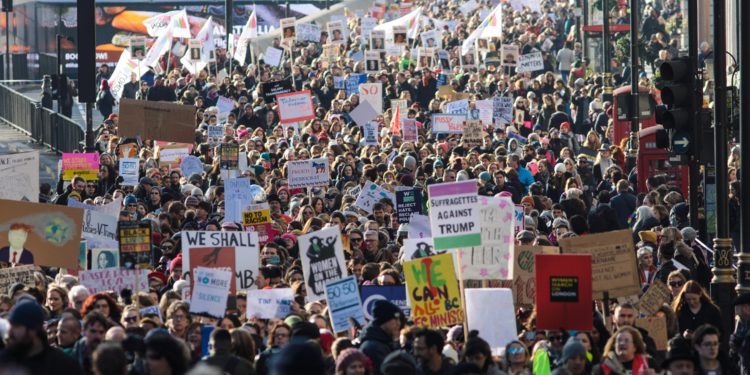[ad_1]
This was the last decade that remodeled activism – the web making it simpler, quicker and louder than ever earlier than to make change occur
Tuesday, 24th December 2019, 7:45 am
On 18th January 2011 a video was recorded on YouTube by 26 year old Asmaa Mahfouz, a young Egyptian woman. She implored fellow Egyptians to stand up for their rights and call for an end of the 30 year authoritarian rule of Hosni Mubarak.
“As long as you say there is no hope, then there will be no hope, but if you go down and take a stance, then there will be hope.” She asked them to join her in protest on Tahrir Square.
Within days, the video went viral around the world. What followed was the beginning of the Egyptian revolution; millions of protesters holding demonstrations and strikes across the country. Nine days after Asmaa posted her video on Facebook, the Egyptian government shut down the internet.
The last decade could be summed up pretty well with Asmaa’s story. A young woman using the power of the internet to spread a message. That message resonating so deeply that it turns people out on the street. A government grappling to maintain control. Internet platforms under fire.
Reeling from the financial crash of 2008, we entered the decade with the Arab Spring and Occupy Wallstreet; people around the world were fed up with the hypocrisy of elites and the status quo of decision makers. They were demanding to be heard.
There have been many Asmaa’s over the decades, frustrated citizens desperate for change. This was the decade that transformed activism – the internet making it easier, faster and louder than ever before to make change happen. It was the decade of people power.
Tech advancements have disrupted traditional power structures. As we rolled into 2010, smartphones and social media became ingrained into our everyday lives. We were connected faster and more easily. And while the public became savvier to these innovations, governments and companies struggled to keep up, to wrap their heads around the value and significance of social media. Who can forget the outrage, online frenzy and petition sparked by Protein World’s Beach Body Ready ads? The campaign to have it pulled made it one of the most complained ads to the Advertising Standards Authority that year.
‘Men start more campaigns, women under 35 win more.’
The decade also saw creative campaigning to raise awareness of issues by “breaking the internet”. Remember the Ice Bucket Challenge? In 2015 a campaign to promote awareness and fundraise for amyotrophic lateral sclerosis (ALS) went viral as we bizarrely filmed ourselves dumping buckets of ice water over our heads.
Every year or so a viral moment has captured the internet’s short attention span; Bring Back our Girls, Kony 2012, Black Lives Matter, Oscars so White, and of course, Me Too. There are criticisms of these so called hashtag campaigns, but there is something powerful about the way society, with all our differences and our busy lives, can be connected for a moment on a single issue, and there is no doubt that campaigns like #MeToo and Black Lives Matter led to real change, from clamping down on NDA’s to body cameras on police officers.
Online campaigning removes traditional barriers to getting active; you no longer need to be an expert, well-connected, or rich to be “political”. Politics is everything and it’s finally become accessible. This new kind of campaigning is levelling out the playing field for those who have historically had their voices silenced – young people, people of colour and women are all exceptionally successful on change.org.
We analysed a sample of 46,000 petitions this year and found that though men start more campaigns, women under 35 win more. When marginal groups have the tools to hack the system, they are difficult to ignore. Especially young people.
They give me hope for the decade ahead: those that have grown up with the internet are ruling activism, having their voices heard and changing the world around them already. And just like a viral petition, that hope is contagious.
Kajal Odedra is the UK executive director of Change.org.
[ad_2]
Source link








